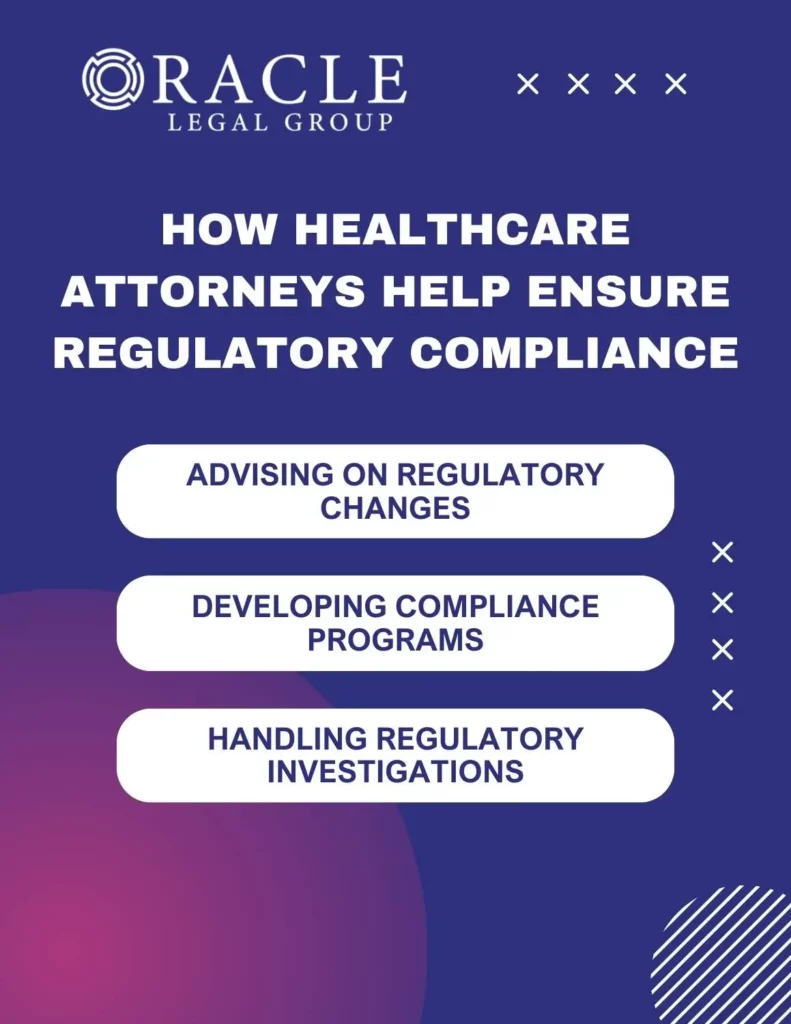Houston, Texas, is home to a thriving healthcare industry, with a multitude of hospitals, clinics, and healthcare facilities serving a diverse and growing population.
In this dynamic environment, healthcare providers face unique challenges related to business growth, contract management, financial management, and ensuring compliance with complex healthcare regulations. The healthcare sector in Houston relies on effective operations management to maintain the quality of care and financial stability of healthcare facilities.
Houston healthcare attorneys play a crucial role in helping these organizations navigate these challenges effectively. They provide legal expertise and guidance on a wide range of matters, including health insurance, contract management, financial management, and compliance with healthcare regulations.
Within the healthcare system, operations managers oversee the core functions of healthcare facilities, ensuring smooth operations and efficient delivery of care. Through collaboration with healthcare attorneys, operations managers can address legal issues and implement strategies to enhance the overall functioning of healthcare facilities in Houston.
HOUSTON HEALTHCARE ATTORNEYS LANDSCAPE
Before delving into the role of healthcare attorneys in Houston, it’s essential to understand the healthcare landscape in the city. Houston boasts some of the nation’s top healthcare institutions, including the Texas Medical Center, which is the largest medical complex globally.
With renowned facilities like the MD Anderson Cancer Center, Houston Methodist Hospital, and Baylor College of Medicine, the city attracts patients from around the world seeking advanced medical care. Health care operations in Houston encompass a wide range of services provided by healthcare professionals, including physicians, nurses, and allied health professionals.
These professionals are dedicated to providing quality care while ensuring compliance with financial, legal, and quality standards. Through care coordination and collaboration, healthcare professionals strive to achieve improved patient outcomes and enhance the overall healthcare experience for patients in Houston.
CHALLENGES IN HEALTHCARE GROWTH
As the demand for healthcare services continues to rise in Houston, healthcare providers are continually looking for ways to expand their reach and enhance their services. This growth presents both opportunities and challenges.
Opportunities:
Increased Patient Base: A growing population in Houston means a larger patient pool, creating opportunities for healthcare facilities to expand their services and cater to diverse healthcare needs.
Advanced Technology Adoption: Healthcare providers in Houston have the opportunity to invest in cutting-edge medical technologies and treatments, attracting patients seeking innovative care.
Challenges:
Regulatory Complexity: The healthcare industry is heavily regulated at the federal, state, and local levels. Navigating these regulations while expanding can be daunting without legal expertise in healthcare operations management.
Contract Management: Expanding healthcare facilities often enter into various contracts, such as vendor agreements, employment contracts, and lease agreements. Effective contract management is crucial to avoid legal disputes and ensure compliance with healthcare regulations.
Financial and Legal Considerations: Managing the financial and legal aspects of healthcare delivery and management requires specialized expertise to navigate complexities while maintaining quality care and patient satisfaction.
Quality Improvement Activities: Healthcare workers must continually strive to enhance patient satisfaction and improve patient outcomes through quality improvement activities, requiring effective operations management and supply chain management strategies.
Caring for Uninsured Patients: Addressing the needs of uninsured patients while maintaining financial viability poses a challenge that requires careful consideration and strategic planning.
Health Care Services: Quality Improvement Activities: Healthcare providers must continually strive to enhance satisfaction and improve patient outcomes through quality improvement activities, requiring effective operations management and supply chain management strategies.
By addressing these challenges and leveraging opportunities, healthcare providers in Houston can enhance healthcare delivery, improve patient outcomes, and contribute to the overall health and well-being of the community.
THE ROLE OF HOUSTON HEALTHCARE ATTORNEYS
Houston healthcare attorneys are legal professionals with expertise in healthcare law and a deep understanding of the intricacies of the healthcare industry. They play a multifaceted role in supporting healthcare facilities in the city.
Ensuring Regulatory Compliance
Healthcare in the United States is subject to a complex web of regulations, including those related to patient privacy (HIPAA), billing (Medicare and Medicaid), and quality standards (CMS). Healthcare attorneys in Houston help facilities navigate these regulations and ensure compliance.
Key Functions:
Advising on Regulatory Changes: Healthcare laws are subject to frequent changes. Attorneys keep healthcare providers informed about new regulations and how they may impact their operations.
Developing Compliance Programs: Attorneys assist in creating and implementing compliance programs that help healthcare facilities adhere to regulations, reducing the risk of legal issues and penalties.
Handling Regulatory Investigations: In the event of a regulatory investigation or audit, healthcare attorneys defend the facility’s interests and ensure proper responses.
Additional Services Offered
- Preventative Services: Assisting healthcare settings in implementing preventative care measures to improve patient outcomes and reduce healthcare costs.
- Case Management: Providing legal guidance on case management practices to ensure efficient and effective patient care.
- Hospital Facilities: Advising on legal matters related to hospital operations and facilities management.
- Clinical Operations: Supporting healthcare facilities in optimizing clinical operations to enhance patient care and safety.
- Operational Efficiency: Offering legal counsel on improving operational efficiency and cost control measures.
- Data Analysis: Assisting in data analysis and analytics to identify trends and inform decision-making processes.
- Management and General Administrative: Providing legal support for general administrative activities, including human resources, finance, and compliance.
- Business Management and General: Advising on legal matters related to overall business administration.
- Medical Needs: Addressing legal issues related to medical services and patient care.
- Big Data: Providing legal guidance on the collection, storage, and use of big data in healthcare settings.
- Services Offered: Ensuring legal compliance with regulations governing the services offered by healthcare facilities.
- Patients Receive: Advising on legal matters related to patient rights and the quality of care patients receive.
- Controlling Costs: Assisting in controlling costs through effective management strategies and legal compliance measures.
Houston healthcare attorneys play a vital role in ensuring that healthcare facilities operate within legal and regulatory frameworks while providing quality care to patients. Their expertise and guidance are essential in navigating the complexities of the healthcare industry.
Contract Negotiation and Management
Expanding healthcare facilities in Houston often need to negotiate and manage various contracts, including those with suppliers, physicians, and insurers. Attorneys specializing in healthcare law provide invaluable support in these processes.
Key Functions:
Contract Drafting: Attorneys draft clear and legally sound contracts that protect the interests of healthcare facilities while ensuring compliance with applicable laws.
Negotiation: Negotiating favorable terms in contracts is essential. Healthcare attorneys leverage their knowledge of industry norms and legal requirements to achieve advantageous agreements.
Contract Review: Before signing contracts, attorneys thoroughly review them to identify potential risks and ensure alignment with the facility’s objectives.
Dispute Resolution: In case of contract disputes, attorneys represent healthcare facilities in negotiations, mediations, or litigation, aiming for favorable resolutions.
Mergers, Acquisitions, and Expansion
Many healthcare facilities in Houston explore opportunities for growth through mergers, acquisitions, or expanding their services. Healthcare attorneys play a vital role in facilitating these complex transactions.
Key Functions:
Due Diligence: Attorneys conduct due diligence to assess the legal and financial aspects of potential mergers or acquisitions, ensuring that healthcare facilities enter into agreements that align with their strategic goals.
Regulatory Approvals: Obtaining the necessary regulatory approvals for mergers and acquisitions can be challenging. Attorneys guide healthcare organizations through these processes.
Integration: After a merger or acquisition, attorneys assist in the integration of systems, staff, and operations to ensure a smooth transition.
Telemedicine and Digital Health
The rise of telemedicine and digital health technologies has introduced new legal considerations for healthcare facilities in Houston. Healthcare attorneys help navigate these emerging areas.
Key Functions:
Telehealth Compliance: Attorneys ensure that tele-health practices comply with state and federal regulations, addressing issues such as licensure, reimbursement, and patient privacy.
Data Security: With the increasing use of digital health records, attorneys assist in developing robust data security and privacy measures to protect patient information.
Telehealth Contracts: Attorneys draft and review contracts related to telemedicine services, including agreements with technology providers and telehealth professionals.
CALL THE ORACLE LEGAL GROUP HOUSTON HEALTHCARE ATTORNEYS TODAY
In the vibrant healthcare landscape of Houston, healthcare attorneys serve as invaluable partners to healthcare facilities, offering legal expertise and guidance on matters of compliance, contract management, and strategic growth.
Their role extends beyond legal representation; it encompasses safeguarding the interests and well-being of healthcare providers and the patients they serve.
As Houston’s healthcare industry continues to evolve, healthcare attorneys remain essential allies in navigating the complexities of the healthcare legal landscape. Contact The Oracle Legal Group today










